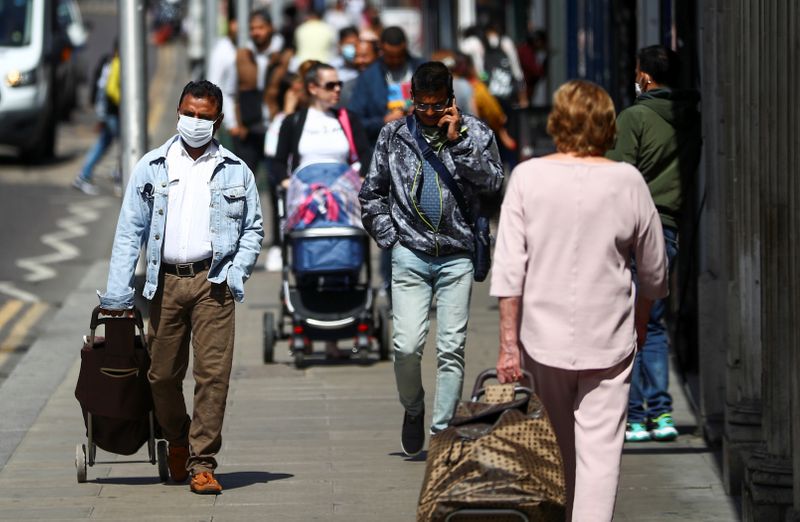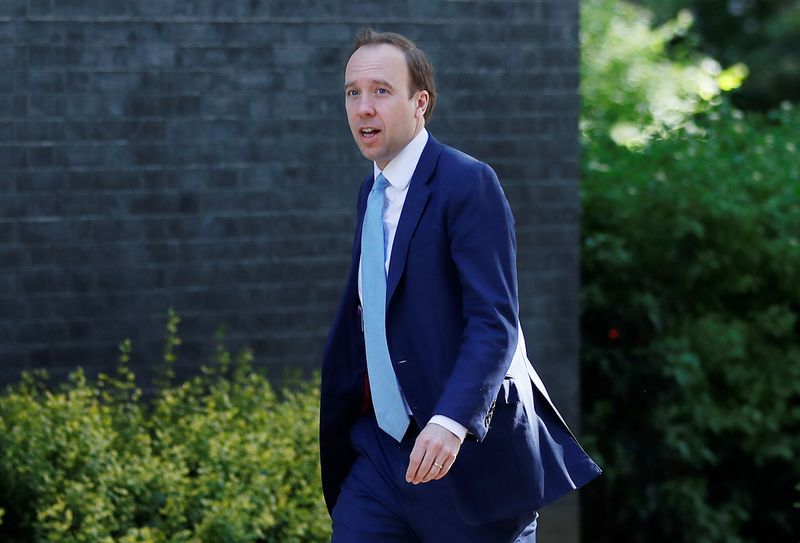LONDON (Reuters) – Britain reported its highest number of new COVID-19 infections in more than a month on Thursday, as ministers fretted about a second wave of cases in Europe and warned more quarantine restrictions were possible.
Prime Minister Boris Johnson said COVID-19 was under some measure of control in Britain, but a resurgence in some European countries showed the pandemic was not over.
“It is absolutely vital as a country that we continue to keep our focus and our discipline, and that we don’t delude ourselves that somehow we are out of the woods or that that is all over, because it isn’t all over,” he said.
Hours later, official data showed 846 new positive tests in Britain – the highest number of daily infections since June 28.
Reflecting rising cases in some European countries, Britain has already reimposed a 14-day quarantine period on people arriving from Spain, a move that caused havoc with the reopening of the continent for tourism in the summer high season.
Luxembourg was added to the quarantine list on Thursday, with all arrivals ordered to self-isolate for 14 days, starting at 1100 GMT.
Earlier, British health minister Matt Hancock stopped short of saying which European countries might end up back on the quarantine list, but cited France as an example of one where infections have lately risen.
“I am worried about a second wave. I think you can see a second wave starting to roll across Europe, and we’ve got to do everything we can to prevent it from reaching these shores, and to tackle it,” Hancock said during an interview on Sky News.
When asked whether Britons should be prepared for more measures to be announced within the next few days, he said yes.
“The number of cases have gone up sharply in some countries in Europe … France now has more cases than we do, per day, and in Spain we saw the numbers shoot up which is why we had to take the rapid action that we did,” Hancock said on Talk Radio.
France reported almost 1,400 new cases on Wednesday, the highest daily increase in more than a month.
Hancock said the authorities were working on possible ways to shorten the quarantine period for people coming from Spain, such as by testing them during the quarantine period.
“But we are not imminently making an announcement on it,” he said in a BBC television interview.
An analysis from Britain’s statistics office showed on Thursday that the country has suffered the highest rate of excess deaths during the COVID-19 pandemic in a comparison of 21 European countries.
(Writing by Estelle Shirbon and William James; Editing by Peter Graff, Frances Kerry and Alex Richardson)


























